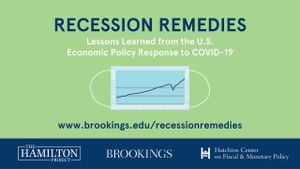Daniel Craig, widely recognized for his role as James Bond, takes on a transformative performance in the latest film adaptation of William S. Burroughs’ Queer, directed by Luca Guadagnino. This film, which adapts Burroughs' semi-autobiographical novella published posthumously in 1985, dives deep not just through the lens of sexuality and addiction, but also explores the darker sides of human connection and existential crises. While Craig has shown his versatility through various roles, his portrayal of William Lee promises to be one of his most compelling performances, marking him as a frontrunner this awards season.
Set against the vibrant backdrop of 1950s Mexico City, Queer offers viewers insight not only through its main character’s escapades but also through the ambiance of the era. The film ensures to capture the charm and chaos of bar culture, enticing viewers with alluring cinematography and unforgettable soundscapes. Guadagnino, known for his work on Call Me by Your Name, takes audiences back to familiar themes, yet does so with fresh, creative visual storytelling. Using contemporary music—from Nirvana to Prince—music plays a pivotal role in mirroring Lee's turbulent emotions throughout the narrative.
Craig’s character, William Lee, is depicted as a seasoned American with complex ties to his nationality, sexuality, and addiction. Struggling with his self-image and often haunted by existential thoughts, he seeks solace and human connection among fleeting encounters with other expatriates and locals. His relationship with Eugene Allerton, played by Drew Starkey, isn’t straightforward. Their bond, marked by lust, negotiation, and emotional exchange, evolves against the backdrop of Lee's reckless abandon on his voyage through Mexico and eventually the Amazon rainforest. The men stand as poignant symbols of Burroughs’ own life explorations, where the lines are often blurred between desire, dependency, and the intense need for personal validation.
Intercut with visual storytelling, comedic moments, and moments of stark reality, the characters engage along paths of relational complexity. Lee's dynamic with Allerton develops as he offers to compensate for the young man's companionship, illustrating Burroughs’ exploration of psychological and sexual transactions. Cunning dialogue unravels within this co-dependent relationship as they traverse their motivations—Lee seeking affirmation, and Allerton discovering his own desires amid Lee’s tumultuous life choices. "The door’s already open, you can’t close it now, all you can do is look away," Allerton quips, prompting audiences to acknowledge the depth of their interaction.
Craig has previously made waves portraying queer characters and facets of sexuality, as evidenced by his earlier role in Love is The Devil. Yet Queer allows him to dissect layers of masculinity vis-à-vis vulnerability and strength within the intimacy shared between Lee and Allerton, a dynamic often lost amid gratuitous portrayals of sex on screen. Craig himself has commented on the challenges of representing intimacy authentically, arguing against the mere use of nudity as sensationalism. He stated, "The only thing that's going on is in the heads of these people; if you can't see it, then the scene is just gratuitous. What are they doing there? What’s affecting them? You owe it to the scene to have all those things in.”
This critique resonates with how equipped filmmakers should be when crafting sexual scenes—imbuing them with narrative purposes to enrich storylines. Instead of shying away from intimacy, Craig champions it, insisting each scene must propel character development or deepen relational dynamics. The film’s refusal to rely on sensationalism epitomizes Craig's skillful performance which balances the physicality of male desire with the psychological depth of Burroughs’ narrative.
Moving beyond tropes and expectations, Queer caters to those familiar with Burroughs’ distinctive world—imbued with subversive attitudes toward sexuality, drug usage, and the relentless quest for connection. This adaptation’s thoughtful approach ensures audiences understand the urgency behind Lee's quest, likening it to Burroughs’ own struggles as he attempted to navigate love and addiction—elements Craig lives through as he inhibits the character. Steeped deeply within the literary references and lush visuals, Lee is not merely stellar as the last word on masculinity but also emerges as vulnerable and poetic.
The film thrives on its layered storytelling. For Craig, this performance steps outside traditional gender roles, anchoring itself within the complexity of LGBTQ+ narratives which have often been treated superficially. Craig stated, “Sex scenes run the risk of simply being an excuse to show actors in the nude if they do not add anything to the film's plot.” Through this lens, through its stunning images, rich dialogue, and thought-provoking interactions, Queer successfully reframes what is often misrepresented or sidelined, elevates narrative and cinematography, and captures the essence of Burroughs’ life—a life defined by both turbulent juxtaposition and quiet longing.
Directed with the deft hand of Guadagnino, whose previous works have explored rich inner lives, Queer guarantees to be visually stunning as well. Each frame offers cuts of nostalgia, contrasting the chaotic nightlife of Mexico City with the isolation of the jungle. The cinematography captures not just landscapes but also emotions—the stark isolation juxtaposed with the loud clamor of characters seeking refuge from their own demons. Craig, with his carefully curated wardrobe and quiet charisma, dominates the frame, allowing audiences to see the full spectrum of Lee's emotional turmoil.
Supporting performances also add texture to Queer. Lesley Manville as Dr. Cotter provides comic relief and wisdom—a foil to Lee's reckless pursuits with her calm yet fierce demeanor. Jason Schwartzman, also, brings humor and charm as Lee navigates not just personal relationships, but also the world around him, illustrating through wit much about societal expectations and norms. Each character serves as reflections of Lee’s experiences, contributing to the emotional and narrative complexity of the film.
To sum it up, Queer offers more than just cinematic allure or scandalous scenes; it probes deep questions of identity, societal acceptance, and the ever-ambiguous cesspool of love and dependency often explored by Burroughs. Craig’s performance solidifies his place among acting's elite as he transforms Lee’s anguished whimsical search for clarity and connection, crafting dialogue and relationships nuanced yet human. The film emerges as not merely another addition to the director's repertoire but stands firmly as both homage to Burroughs’ legacy and Craig’s continued evolution as one of cinema’s boldest actors. With rich thematic resonance and layers of complexity, Queer transcends its source material, becoming not just worth watching but critically significant, ensuring audiences walk away reflecting on the delicate balance of love, sexuality, and self-discovery.



